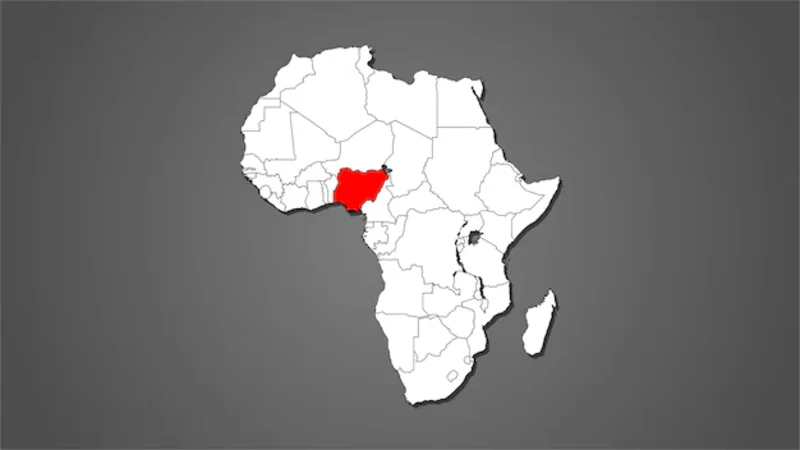
Nigeria, like many other countries in Africa, is experiencing rapid growth in its digital economy. Only recently, the Federal Government of Nigeria through the Ministry of Communication and Digital Economy recognised four key drivers of Nigeria’s Digital Economy as contained in the National Digital Economy Policy and Strategy (2020-2030).
These four drivers - Digital Infrastructure, Digital Services, Digital Skills and Digital Entrepreneurship - of the nation’s digital economy offer great potential for the country's digital economy. However, there are also some challenges that need to be addressed for sustained growth. Nigeria remains one of the few African countries that have a wide reach in terms of digital exploration and implementation. However, there remain certain challenges that present themselves even as Nigeria continues to grow.
Now that we have established this, let us take a look at the four drivers of Nigeria’s digital economy as well as challenges and opportunities for growth.
Digital Infrastructure
Digital infrastructure is the backbone of any digital economy, and Nigeria has made significant strides in this area. The country has made progress in the deployment of broadband networks, which has led to increased internet penetration and access to digital services. However, there is still a significant portion of the population without access to reliable internet and digital services, particularly in rural areas. This digital divide needs to be bridged for Nigeria to fully harness the potential of its digital economy.
In addition, there are challenges in the deployment and maintenance of critical digital infrastructure such as data centres and cybersecurity systems. The government needs to invest more in these areas and create an enabling environment for private-sector investment. Only recently, Nigeria’s president, Muhammadu Buhari, on 2 February 2023, officially welcomed the deployment of Starlink, a satellite internet service operated by SpaceX. This development promises to enhance internet connectivity and penetration in many rural areas, however, there are still questions about its affordability to ordinary Nigerian citizens.
READ ALSO - Report: Africa’s Smartphone Market Shrunk by 18% in 2022
Digital Services
The growth of Nigeria's digital economy is being driven by the development of digital services such as e-commerce, digital payments, digital health, and digital education. The country has witnessed the emergence of successful startups in these areas, such as Jumia and Paystack. However, there are challenges in the regulatory environment, which can stifle innovation and growth in these areas. Outside the e-commerce sector is the potential that comes with digital currency and platforms that provide these services. However, the government of Nigeria seems to be in competition with these platforms with its innovation of the e-Naira (Nigeria’s official digital currency, standard of the Naira) and restrictions recently imposed on cryptocurrency platforms across the country.
In 2021, the Central Bank of Nigeria recently placed restrictions on cryptocurrency transactions, which has affected the growth of the country's crypto industry. Experts have also advised that the government needs to create a regulatory environment that fosters innovation and growth in these areas instead of stifling platforms that provide these services.
Digital Skills
Digital skills are crucial for the growth of any digital economy, and Nigeria has a large pool of young and talented digital workers. However, there is still a skills gap in the country, particularly in emerging areas such as artificial intelligence and blockchain technology. There is also a need for more vocational training programs that can equip young people with the skills needed to participate in the digital economy.
Nigeria’s informal digital economy needs to also be harnessed for all the potential it currently shows. There are a number of digital platforms that connect service providers to customers and these platforms have tilted the needle for the potential opportunities needed to grow digital skills in Nigeria.
READ ALSO - How Technology is Transforming the Future of Work for African Women
Digital Entrepreneurship
Digital entrepreneurship is an essential driver of Nigeria's digital economy, and the country has witnessed the emergence of successful startups such as Flutterwave and Andela. However, there are still challenges in this area, such as limited access to finance and the high cost of doing business in Nigeria.
The government needs to create an enabling environment for startups and provide more support for early-stage entrepreneurs.
In conclusion, Nigeria's digital economy has great potential, but there are challenges that need to be addressed for sustained growth. The government needs to invest more in digital infrastructure, create a regulatory environment that fosters innovation, provide more vocational training programs, and create an enabling environment for startups. With the right policies and investments, Nigeria's digital economy can become a significant contributor to the country's economic growth and development.
Tags
Nigerian Digital Economy
Digital Infrastructure
Digital Service
Digital Skills
Digital Entrepreneurship
Categories
News
Featured
Similar News
May 20, 2024

Egyptian and Tunisian Startups Chosen for Climate-Focused Mega Green Accelerator
May 26, 2024

Google to Construct First Subsea Fiber-Optic Cable Linking Africa and Australia
May 21, 2024

Nigerian Startups Secure 30% of $15 Billion Funding by African Startups Over Five Years
Are you a start-up or an entrepreneur in Africa?
Subscribe to our mailing list
